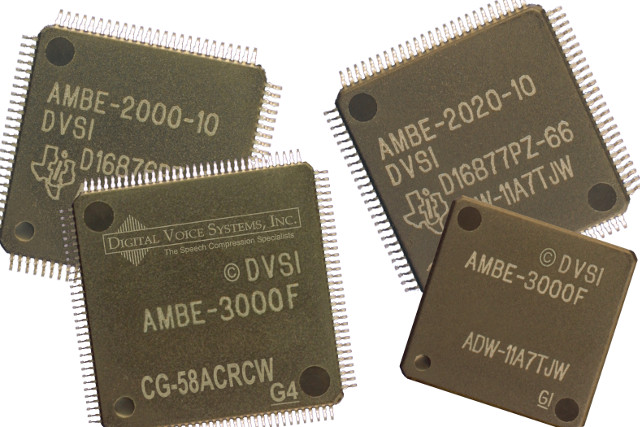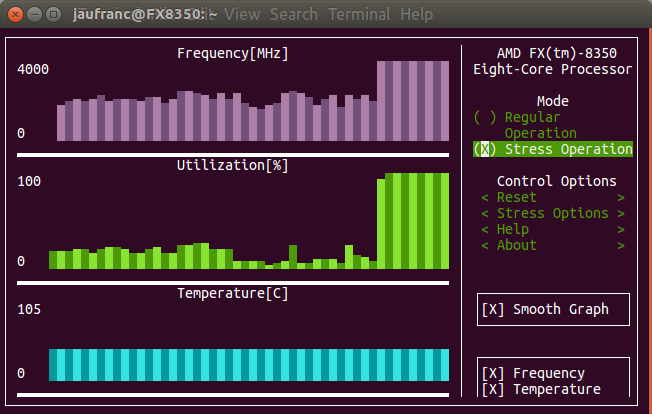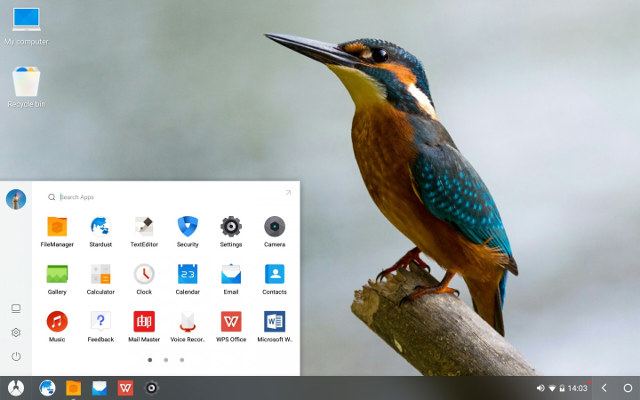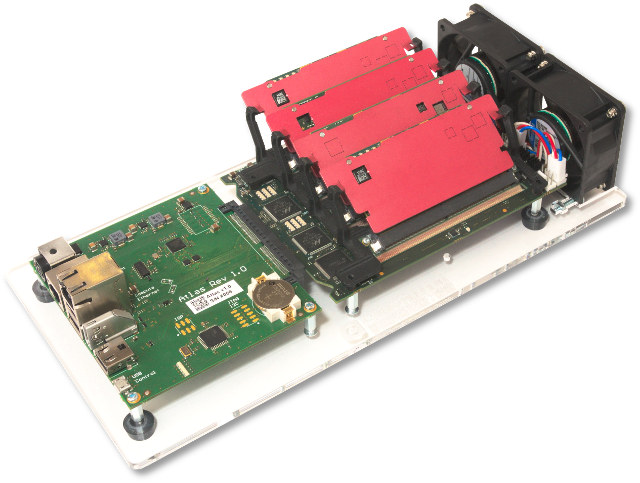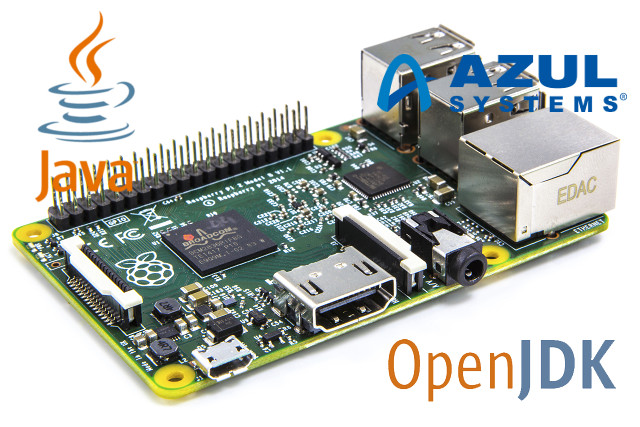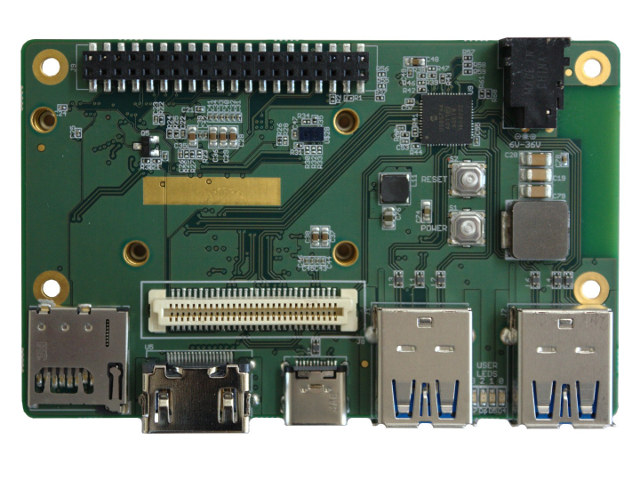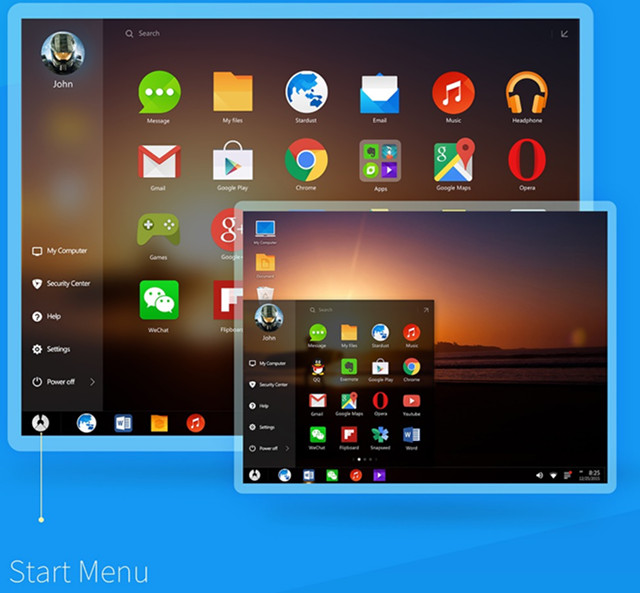Opus 1.2 open source audio codec was release a few months ago with the ability to deliver low power low high-quality audio bitrate for speech with bitrates as low as 12 Kbps. Digital Voice Systems (DVSI) claims to have gone even lower thanks to their AMBE+2 vocoder (Advanced MultiBand Excitation) providing high-quality speech at data rates from 2.0 to 9.6 kilobytes per second. AMBE+2 vocoder is said to outperform the company’s previous generation AMBE+ Vocoder as well as the G.729 and G.726 vocoders, while operating at only 4.0 Kbps. The vocoder is suitable for mobile radio, secure voice, satellite communication, computer telephony, digital voice and storage applications The solution can be integrated into product either using software licensing, or through Vocoder chips, and the company lists the following key benefits: Maintains speech intelligibility and speaker recognition at rates as low as 2.0 kbps Resistant to background noise and channel bit errors […]
The Stress Terminal UI (s-tui) is a Pretty CPU and Temperature Monitoring Terminal App
While it’s possible to do monitoring with tools like RPI-Monitor on headless or remote systems, top and htop are likely the commonly used tools to monitor CPU and process usage in the terminal. There’s now a new and different option with the Stress Terminal UI that display pretty charts for frequency, CPU usage, and temperature in the terminal, and as its name implies it can also stress the system. I’ve first installed it in my main computer running Ubuntu 16.04.2 as follows:
|
1 |
sudo pip install s-tui |
and then just started it
|
1 |
s-tui |
It took the screenshot above after enabling stress operation for a few seconds, and while frequency and CPU utilization in percent are updated properly, temperature is not, at least on my system. I had to enable “Smooth Graph” option to see any changes in the first two charts. I tried to run the app again with sudo, but still no temperature […]
Embedded Linux Conference & Open Source Summit Europe 2017 Schedule
The Embedded Linux Conference & IoT summit 2017 took place in the US earlier this year in February, but there will soon be a similar event with the Embedded Linux Conference *& Open Source Summit Europe 2017 to take up in Europe on October 23 – 25 in Prague, Czech Republic, and the Linux Foundation has just published the schedule. It’s always useful to find out what is being discussed during such events, even if you are not going to attend, so I went through the different sessions, and compose my own virtual schedule with some of the ones I find the most interesting. Monday, October 23 11:15 – 11:55 – An Introduction to SPI-NOR Subsystem – Vignesh Raghavendra, Texas Instruments India Modern day embedded systems have dedicated SPI controllers to support NOR flashes. They have many hardware level features to increase the ease and efficiency of accessing SPI NOR […]
Phoenix OS 2.1 Android 7.1 based Desktop OS Released for 32-bit and 64-bit x86 Platforms
With Jide’s announcement that they’d stop working on Remix OS for the consumer market, focusing on the enterprise market instead, people who like to use Android as a desktop OS lost an option. Luckily, others have not given up on the concept yet, and Phoenix OS 2.1 based on Android 7.1 with desktop improvements has just been released for computers based on Intel/AMD 32-bit and 64-bit x86 processors. Phoemix OS user interface is a mix between Windows desktop with a desktop, a taskbar, and a start menu, and Android with notifications, and Back/Home/Recent buttons. The OS also supports Android apps, multi-window, window resizing, better multi-tasking, and so on. Changelog for Phoenix OS 2.1: Keyboard mapping updates to version 2.5 with smart casting for Strike of Kings. The bug that window size won’t be saved after restart has been fixed. Enhance the hardware compatibility, including: sound card, network adapter, etc. “Start […]
Christmann RECS|Box Atlas Quad Apalis Microserver Evaluation Kit Supports Four Toradex Apalis SoM
System-on-modules are normally used in low volume embedded systems, but they can also be used in microservers, for example to upgrade capacity as needed. Christmann informationstechnik + medien GmbH has developed a microserver evaluation kit taking up to 4 Toradex Apalis SoMs for example based on Nvidia Tegra K1 processor, and also offers full rack systems with up to 72 modules. Christmann RECS|Box Atlas Quad Apalis specifications: Modules – 4x Slots for Apalis SoM Connectivity – 1 GBit/s Compute Ethernet, 1 GBit/s Management Ethernet Video Output – 1x HDMI USB – 3x USB host ports, 1x micro USB port Misc – 5 Status LEDs for USB, communication, and serial console, 4x fan connectors, KWM switch, 5x temperature sensors, 6x current sensors, 1x voltage monitor, fan speed monitoring Power Supply – 12V via a 4-pin jack Dimensions – 300 x 145 x 68 mm The evaluation kit includes an Atlas board […]
Azul Systems’ Zulu Embedded is a Build of OpenJDK for ARM, MIPS, PowerPC, and x86 Compliant with Java SE standard
Yesterday as I wrote about the Embedded Systems Conference 2017 schedule I came across a potentially interesting talk entitled “Building A Brain With Raspberry Pi and Zulu Embedded JVM” by Azul Systems that will explain how to build a brain emulator using a cluster of Raspberry Pi boards. I wanted to find more about it, but I have not been able to find any details about the project/demo at this stage. However, I could still learn a bit more about Zulu Embedded, which is said to be an open source Java Virtual Machine based on OpenJDK, compliant with Java SE standard, working on 32-bit & 64-bit ARM & x86, MIPS, and PowerPC, as well as multiple operating systems. Some of the key features of Zulu Embedded include: Java Support – Java 6, 7, 8, and 9 when available Java Configurations – Headless, headful, or compact Java Compact Profiles Hardware – […]
Gumstix Nodana 96BCE 96Boards Compatible Baseboard Takes Intel Joule Module
96Boards is an initiative from Linaro, an engineering organization focusing on ARM development, to define some hardware and software specifications for development boards. But since 96Boards specifications are open, Gumstix decided to create the first x86 board compliant with 96Boards CE hardware specifications with Nodana 96BCE baseboard powered by Intel Joule Module. For obvious reasons, this will never be an officially supported 96Boards.org platform. Nodana 96BCE board specifications: SoM – Intel Joule Module based on Intel Atom T5700 or T5500 processor with up to 16GB storage, 4GB RAM. External Storage – 1x micro SD card Video Output – 1x HDMI port USB – 2x USB 3.0 ports, 1x USB 3.0 type C port Expansion Headers 96Boards Low Speed connector with I2C, SPI and UART 96Board High Speed connector with MIPI DSI and USB 2.0 Power Supply – 8 to 18 V (if it follows 96Boards CE specs) Dimensions – 85 […]
Phoenix OS is Another Desktop Oriented Android Distribution for ARM and x86
After Light Biz OS, Remix OS, and Console OS, here’s another Android distribution that aims at creating better desktop experience in Android. Phoenix OS works on some ARM platforms, namely Nexus 9 and Nexus 10, as well as 64-bit x86 processors and like the x86 version of of Remix OS is based on Android-x86 project. Just like other alternatives, it adds features usually found in Windows or Linux distributions such as a start menu, a task bar, multi-window support, notification handling via the taskbar, etc… If you’d like to try it out in a computer with an Intel or AMD computer, you can follow the instructions below from a Windows machine: Prepare a 4GB+ flash drive Download the latest Zip file of Phoenix OS (x86) to your PC, currently Phoenix-x86-1.0-32-beta.zip Download and install USBMaker tool to your PC Start USBMaker.exe, select the flash drive and Zip file, and press “Write” […]


